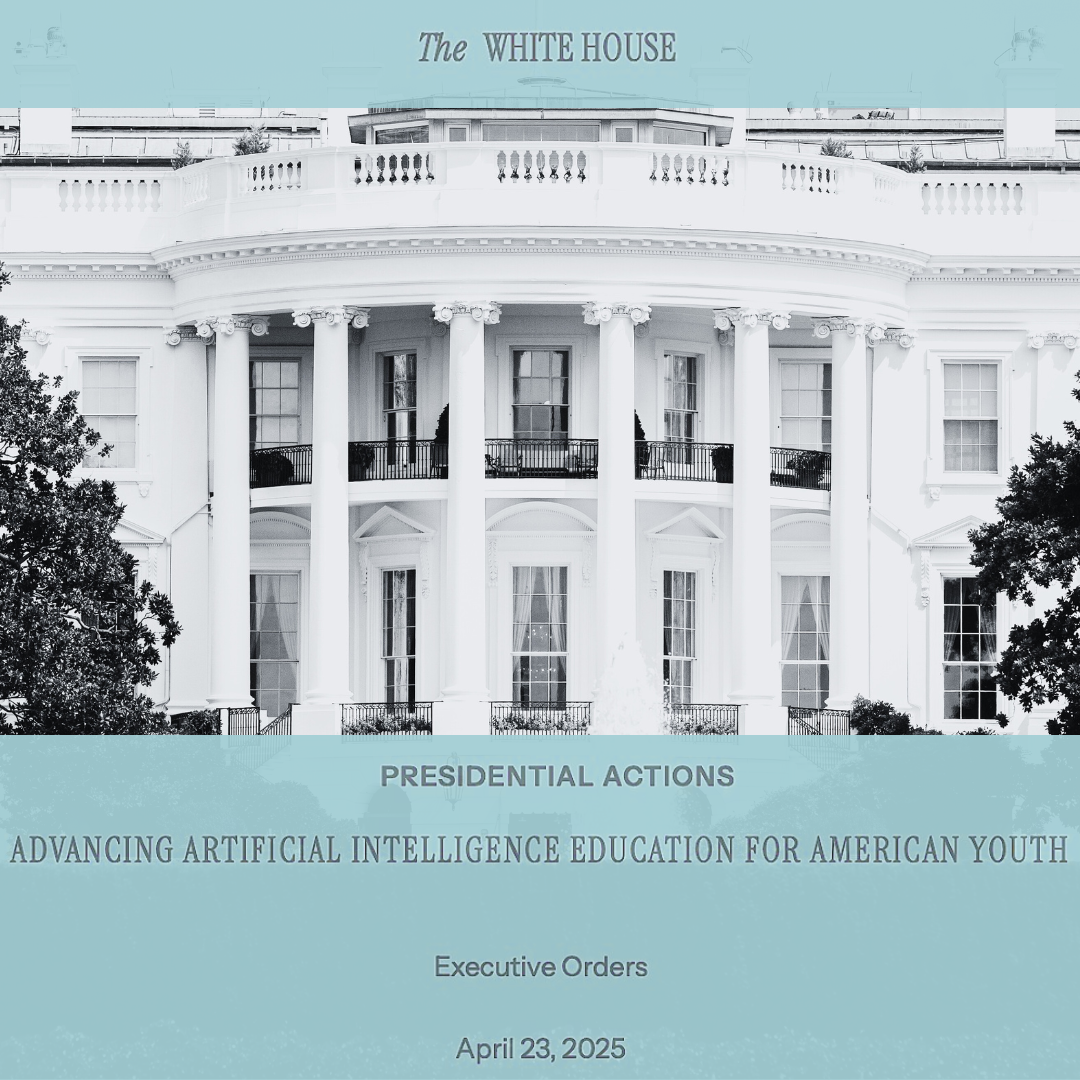EO Addresses AI in Education
A new Executive Order was signed yesterday focused on "Advancing AI Education for American Youth." The EO outlines a plan for embedding AI education across K-12 to "equip our students with the foundational knowledge and skills necessary to adapt to and thrive in an increasingly digital society."
At AI for Education, we believe that the 2025-2026 school year should be the year of AI literacy for students. We are encouraged to see the current administration's focus on training both young people and teachers.
Questions we have after reviewing the EO:
Will the focus of the training for students be on the computational/CS side of things or on broader AI literacy (e.g., how to use GenAI tools safely, ethically, and effectively)?
With almost no research on the impact of chatbot use with young children, how will the EO's focus on early integration of AI education be crafted to ensure developmental appropriateness?
Considering how quickly the field of AI is changing, is it reasonable to expect teachers to be able to integrate the fundamentals of AI into all subject areas and specialists to be able to teach advanced AI skills?
Will there be an opportunity for educators, students, and caregivers to be active participants in the development of the task force's approach?
With the focus on public-private partnerships, will there be an opportunity for educators and those focused on AI literacy to work with foundation model companies to design fit-for-purpose tools for education?
Will there be an opportunity for researchers through grants to start to gather evidence on how AI education and adoption impacts students' learning outcomes and self-perceptions, traditional instruction and assessment models, and teacher-student relationships to name a few.
We are at the earliest stages of the proliferation of GenAI in our society and schools, so we are pleased to see such a strong commitment to AI education and are hopeful this will lead to significant funding and support for our K12 system.
But in the meantime, so many questions.
You can check out the factsheet here.

